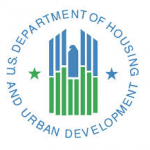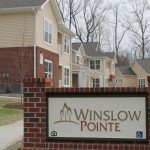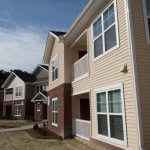 Susan Ellinger will be speaking and leading a housing law presentation on November 15, 2019 in Florence, South Carolina. The Florence meeting is a gathering of the South Carolina Housing Authority Executive Directors. Susan, a lawyer and Ellinger Carr founding member, is also former Housing Authority executive. She will be advising the South Carolina executive directors on new developments in fair housing, domestic violence and requirements of the Violence Against Women Act, due process rights, housing authority leases and lease enforcement, and training of Authority staff on all of these legal issues and matters. Susan and other Ellinger Carr lawyers represent and advise Housing Authorities in North Carolina and South Carolina.
Susan Ellinger will be speaking and leading a housing law presentation on November 15, 2019 in Florence, South Carolina. The Florence meeting is a gathering of the South Carolina Housing Authority Executive Directors. Susan, a lawyer and Ellinger Carr founding member, is also former Housing Authority executive. She will be advising the South Carolina executive directors on new developments in fair housing, domestic violence and requirements of the Violence Against Women Act, due process rights, housing authority leases and lease enforcement, and training of Authority staff on all of these legal issues and matters. Susan and other Ellinger Carr lawyers represent and advise Housing Authorities in North Carolina and South Carolina.
Ellinger Carr is a business law and commercial real estate law firm based in Raleigh, North Carolina. Providing safe, affordable housing for families, seniors and developmentally disabled persons has long been a part of the work of the Ellinger Carr law firm, in communities in the Carolinas, the Southeast and elsewhere in the United States.
Ellinger Carr lawyers are experienced and knowledgeable counselors, transaction leaders, and business problem solvers, admitted to practice in North Carolina, South Carolina, Florida, Louisiana, Virginia and New York. For assistance in affordable housing, HUD financing, commercial real estate and corporate and business development matters, call 919-785-9998 or email Susan Ellinger at sellinger@ellingercarr.com, Heather McDowell at hmcdowell@ellingercarr.com, Sarah Goodin at sgoodin@ellingercarr.com, or Steven Carr at scarr@ellingercarr.com.






 Over the past twelve months, Ellinger Carr lawyers have counseled and assisted with the closings of more than 20 complex commercial transactions for the investment of more than $335 million in equity and debt financings of multifamily affordable housing apartment complexes. These closings provided for tax credit financing, including tax credits allocated by the North Carolina Housing Finance Agency and similar housing finance agencies in other states, for commercial real estate developments in affordable and senior communities in North and South Carolina, and in Florida, Georgia, Louisiana, Tennessee, Texas and Virginia.
Over the past twelve months, Ellinger Carr lawyers have counseled and assisted with the closings of more than 20 complex commercial transactions for the investment of more than $335 million in equity and debt financings of multifamily affordable housing apartment complexes. These closings provided for tax credit financing, including tax credits allocated by the North Carolina Housing Finance Agency and similar housing finance agencies in other states, for commercial real estate developments in affordable and senior communities in North and South Carolina, and in Florida, Georgia, Louisiana, Tennessee, Texas and Virginia.

